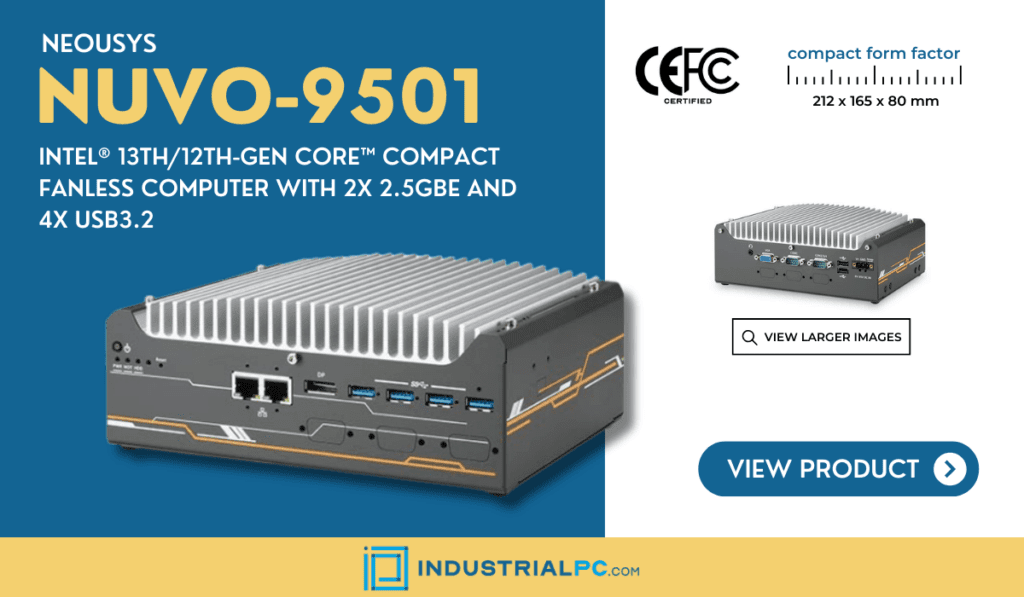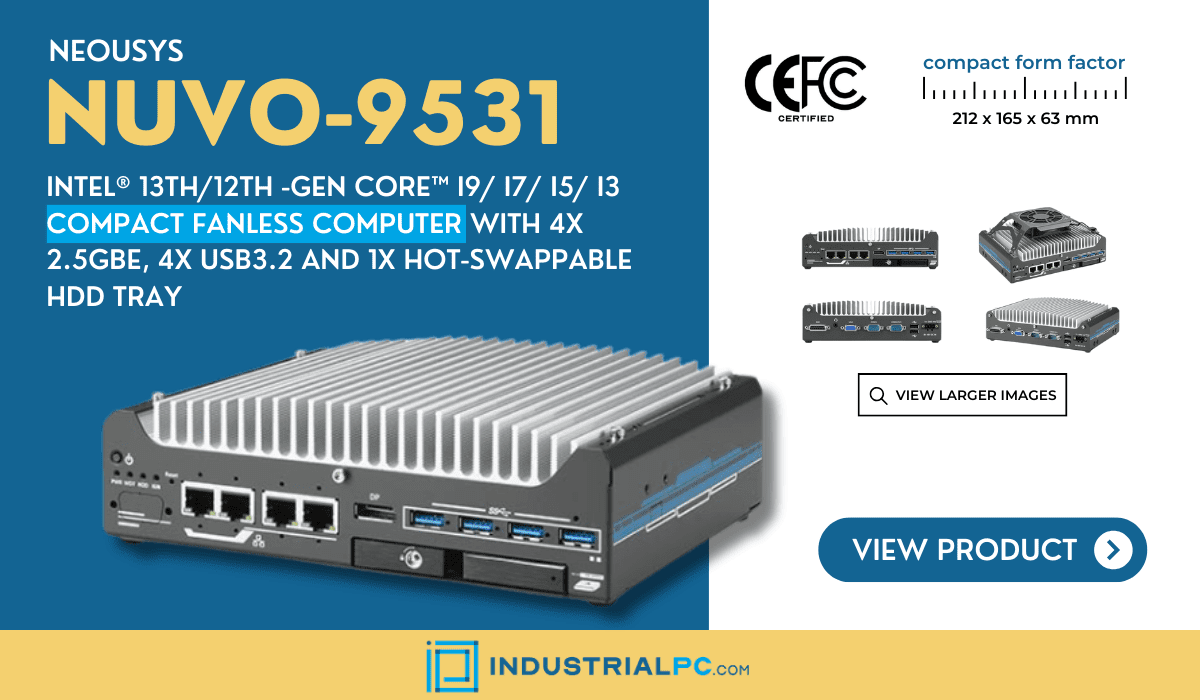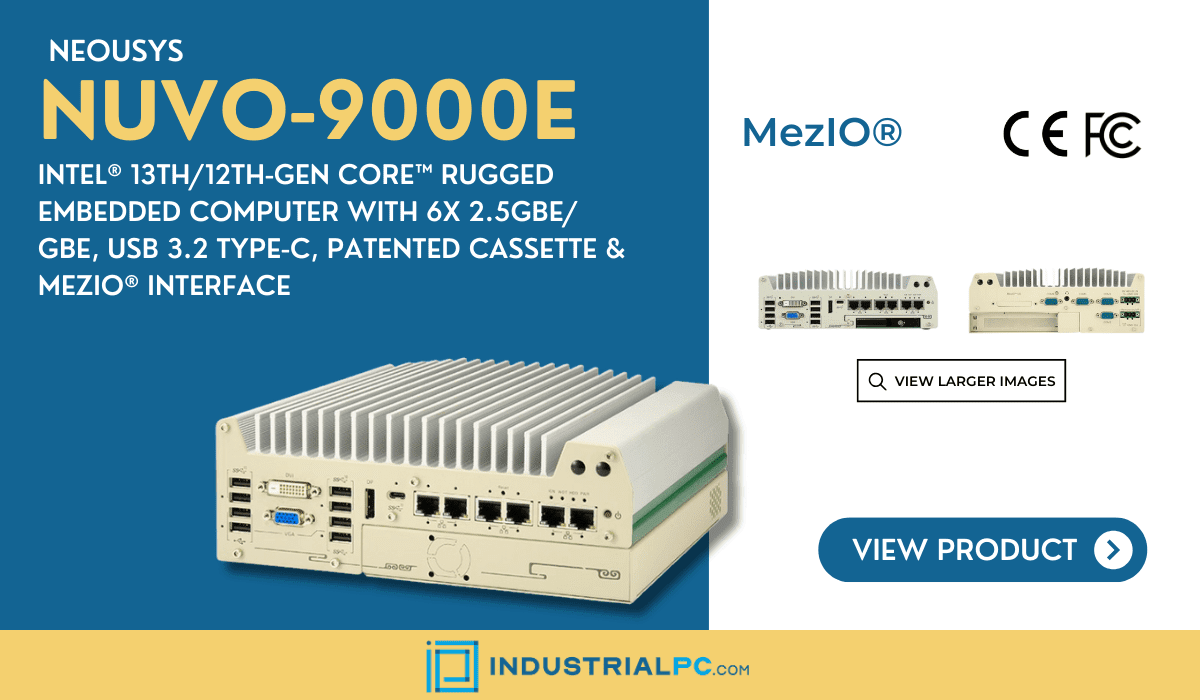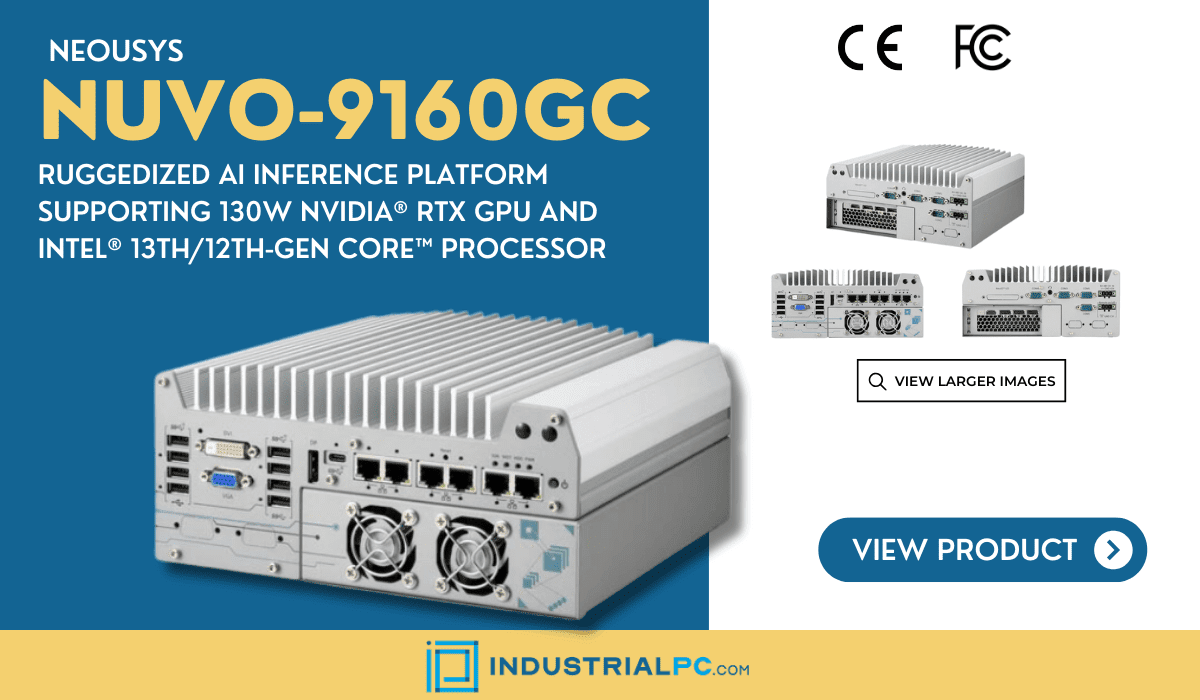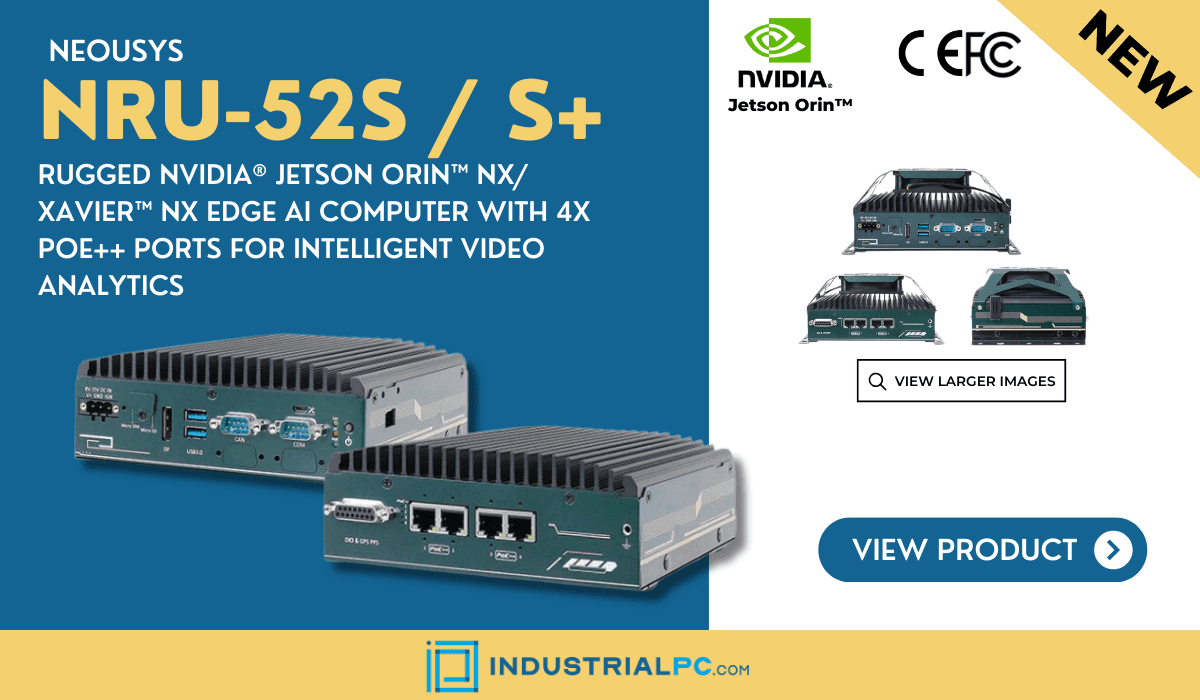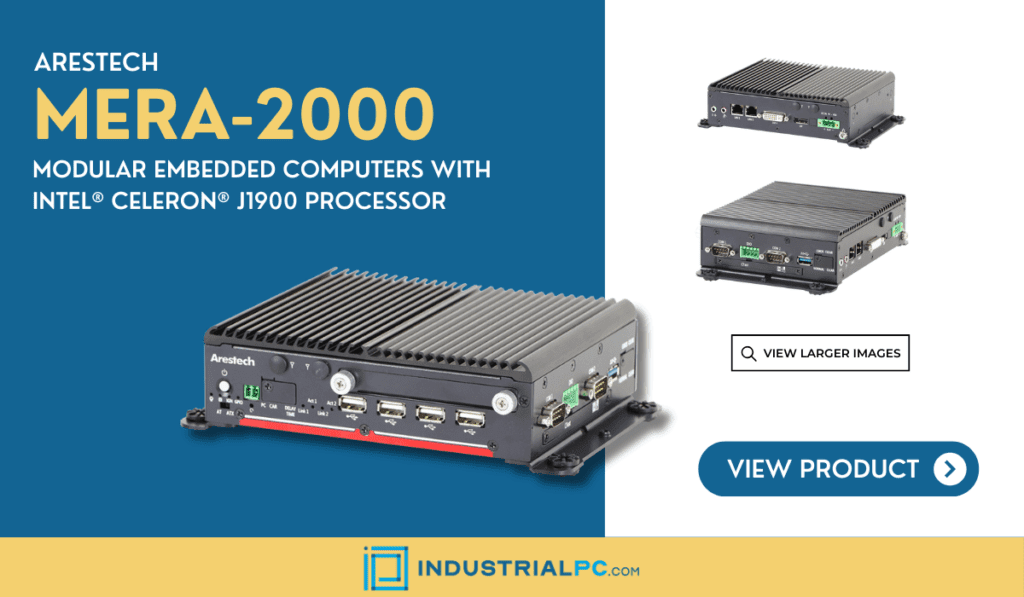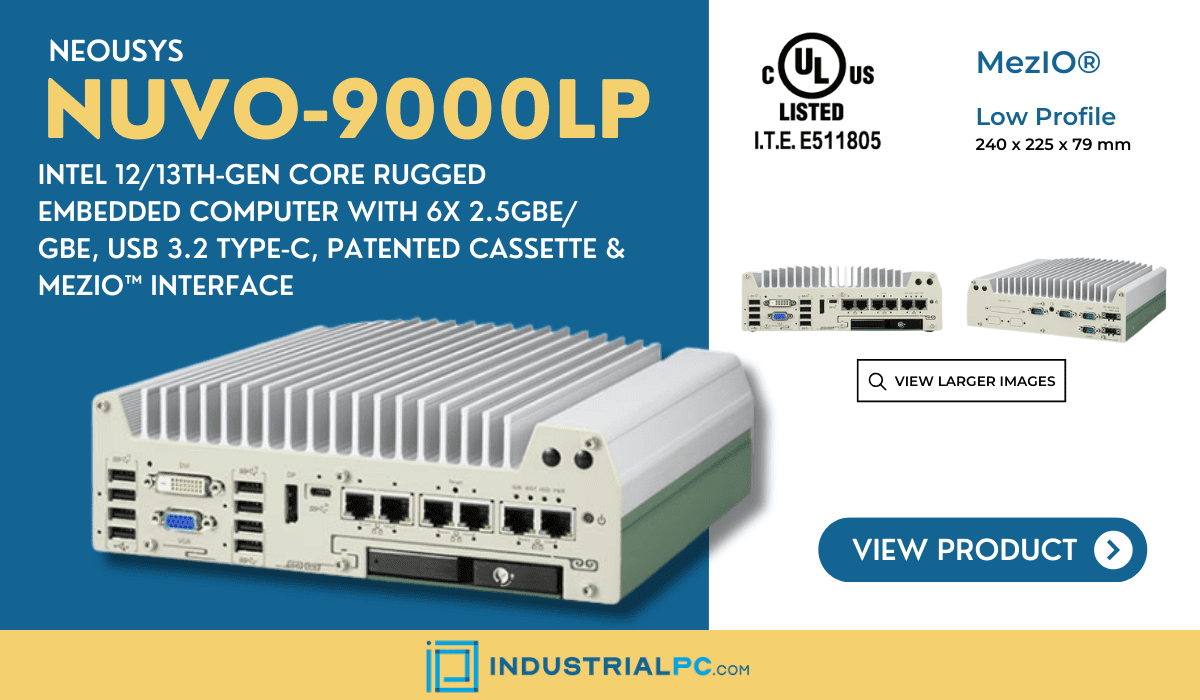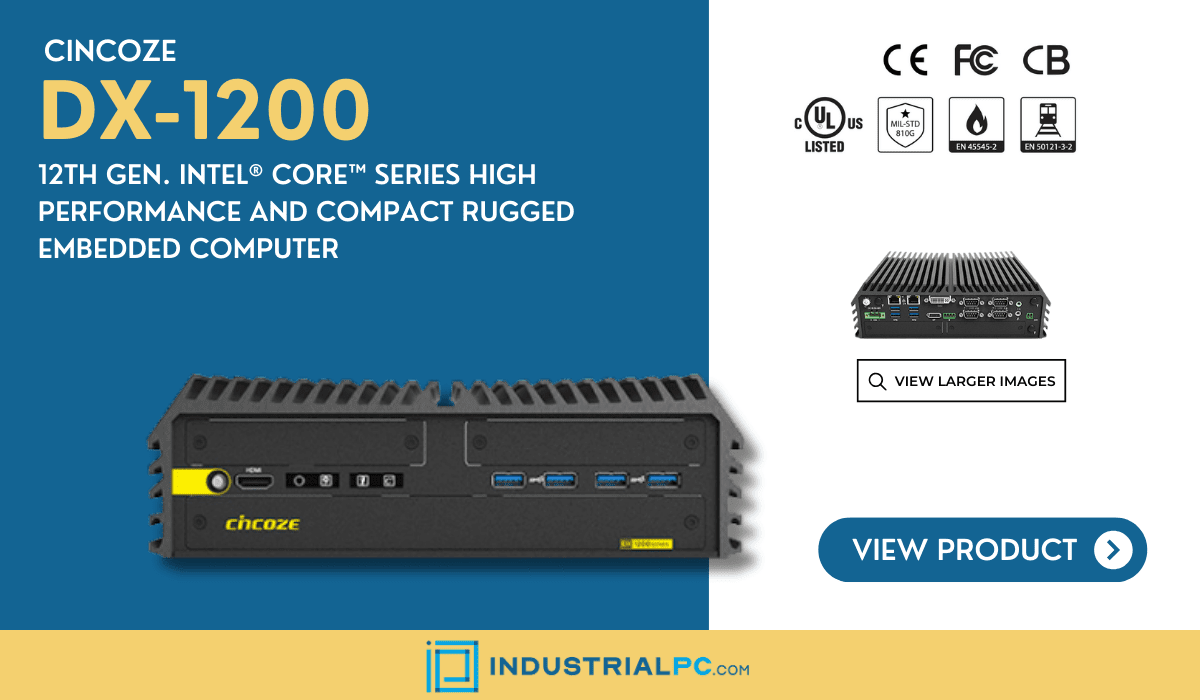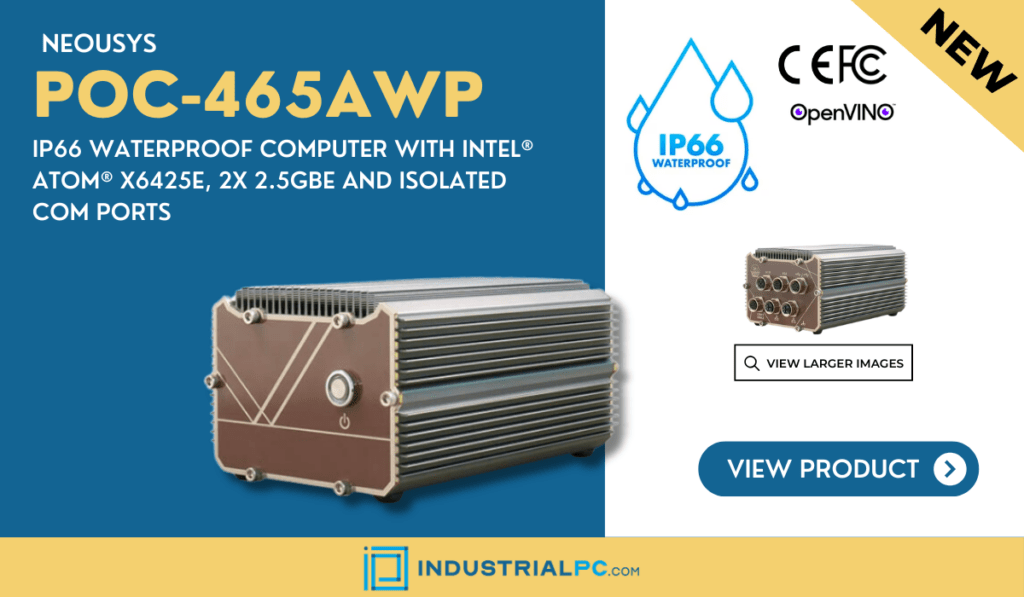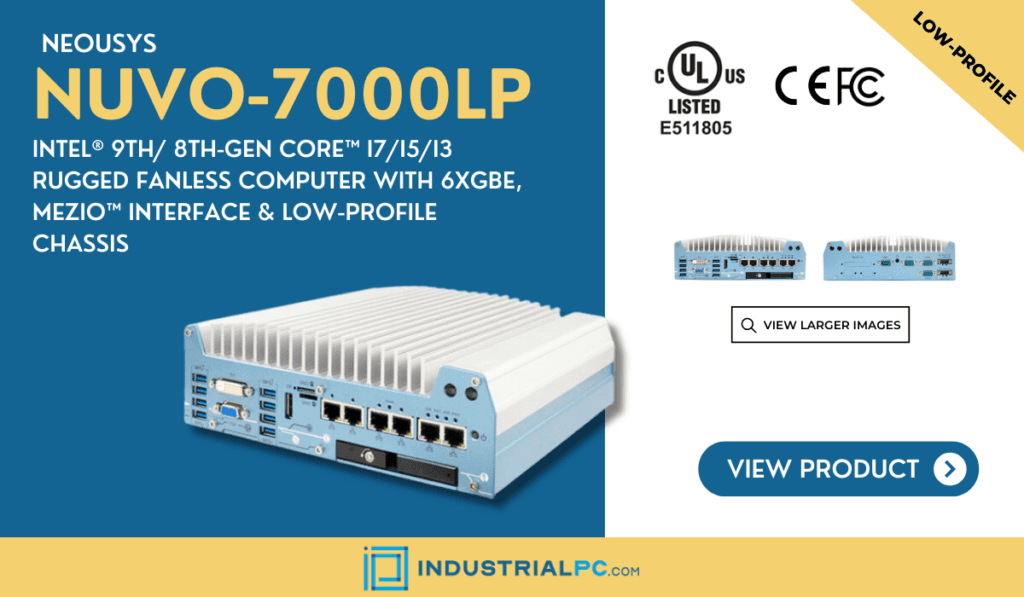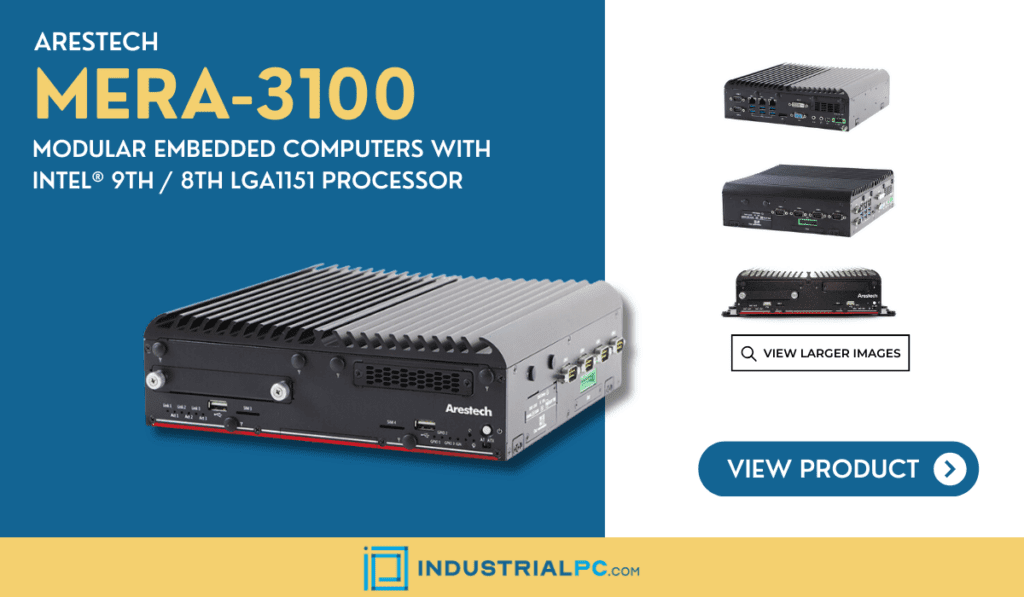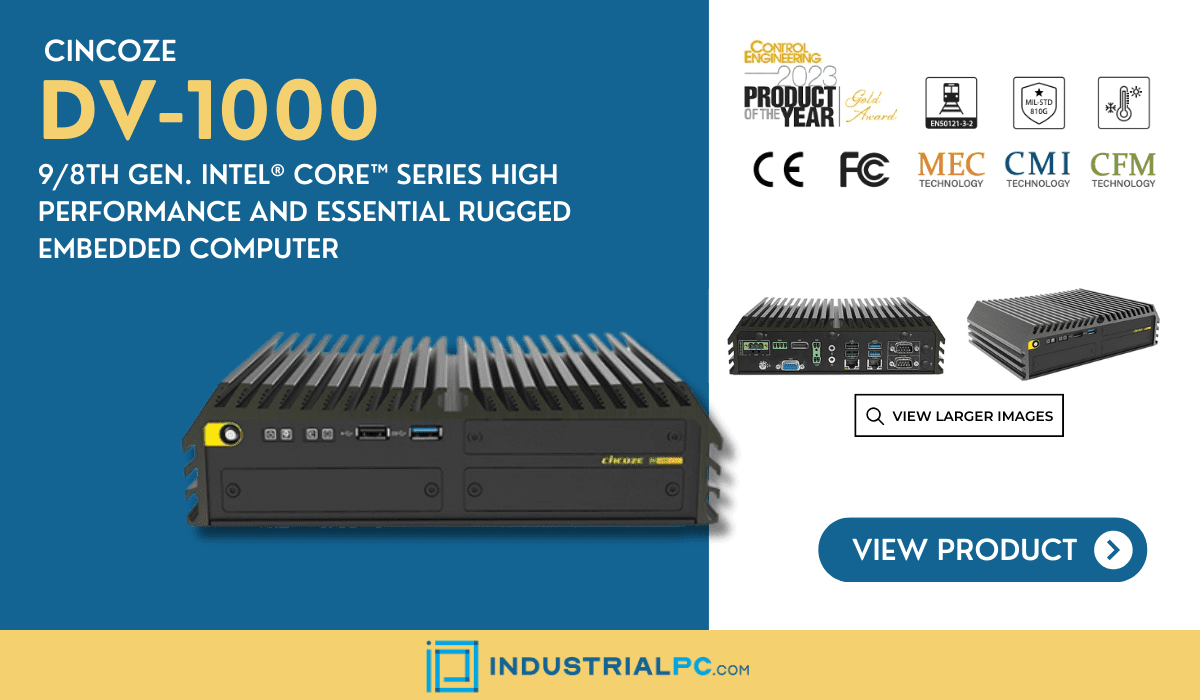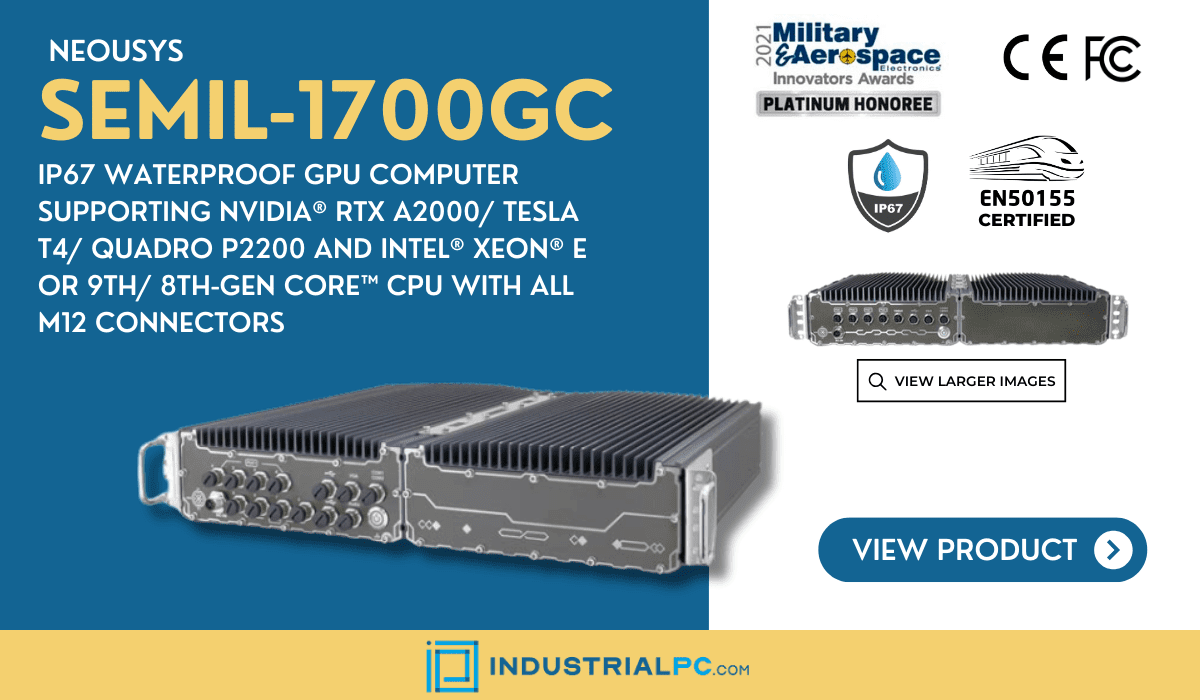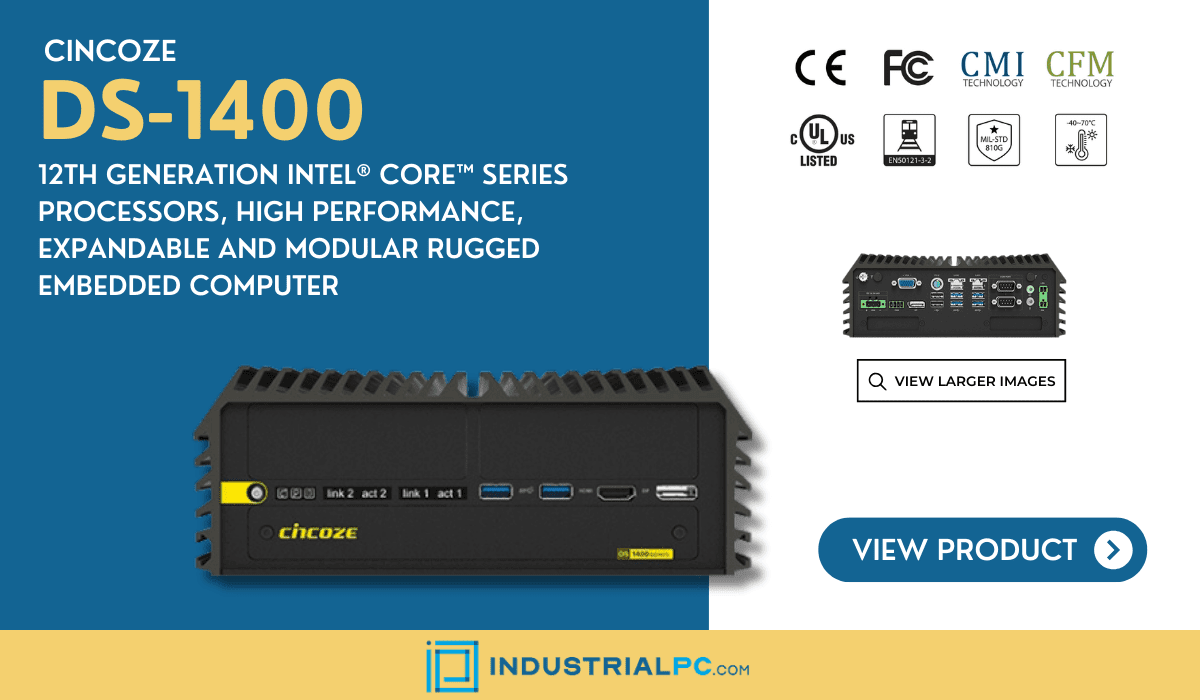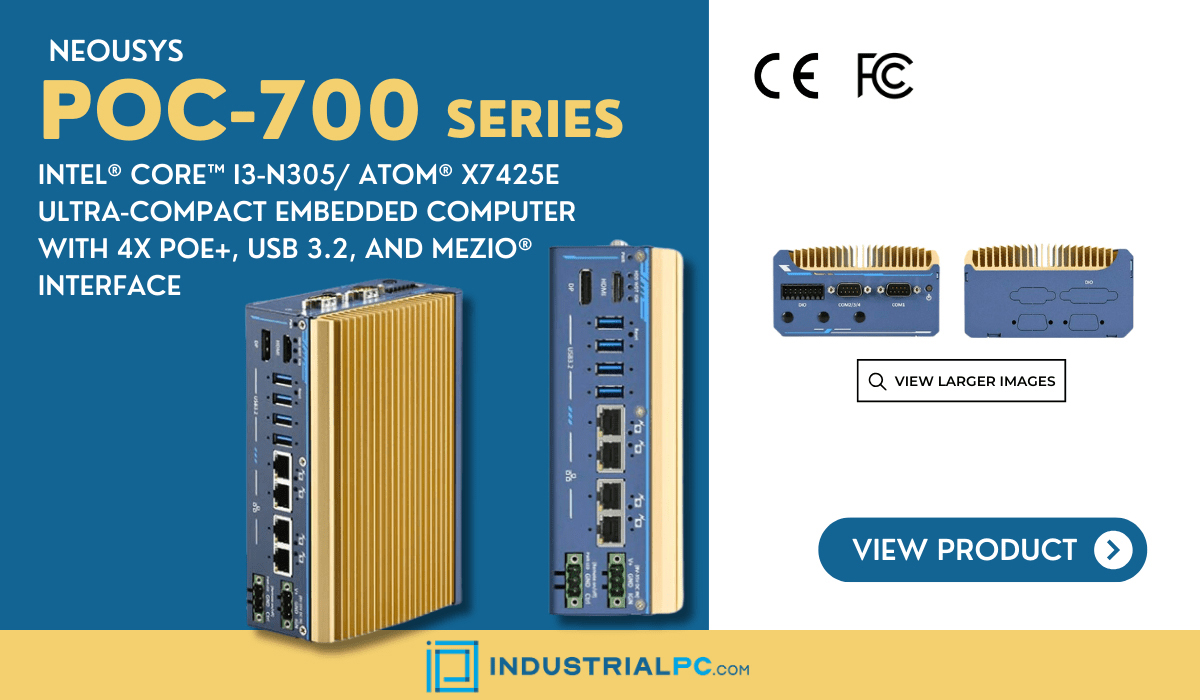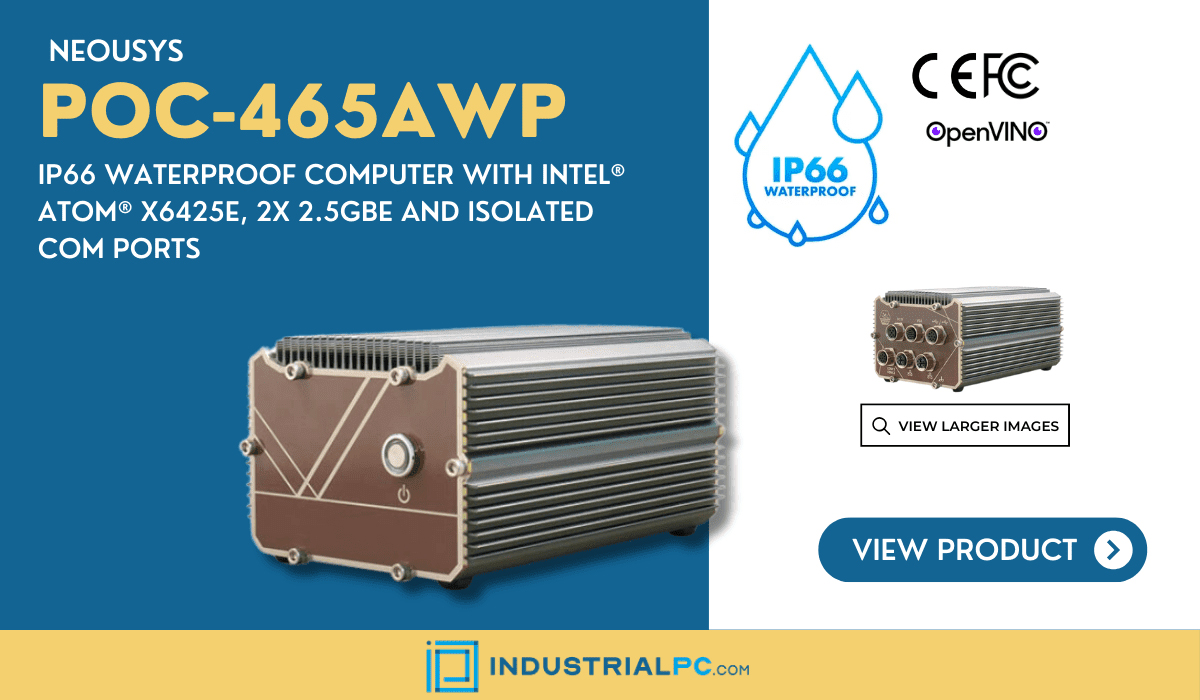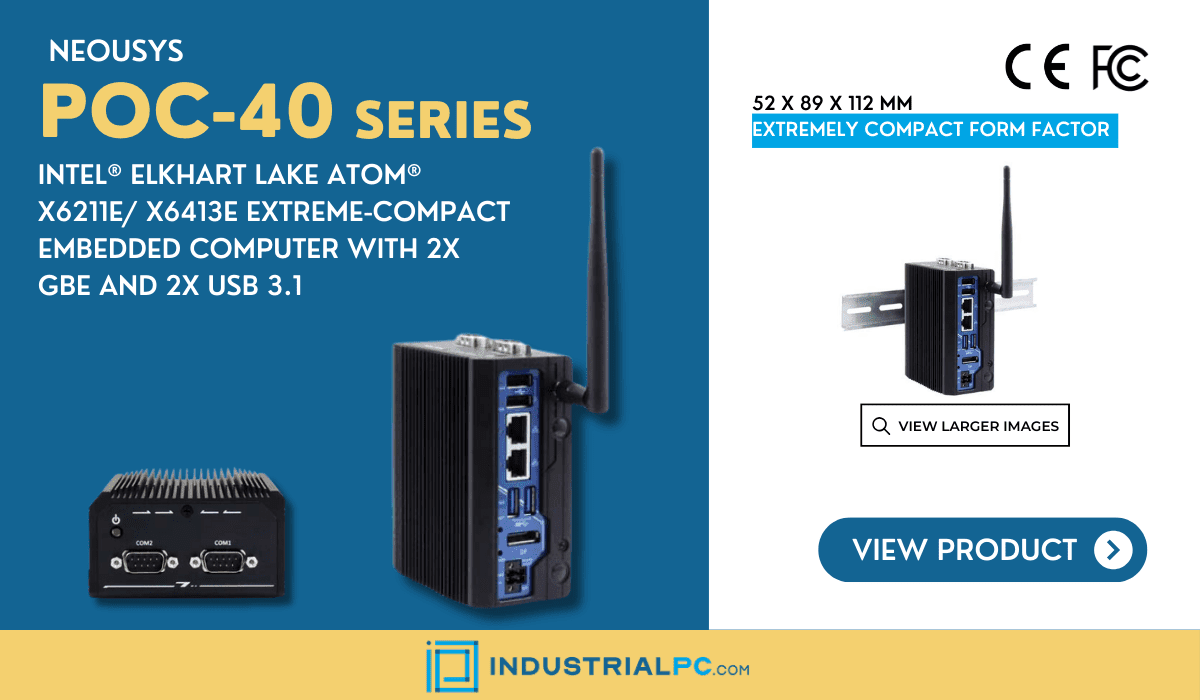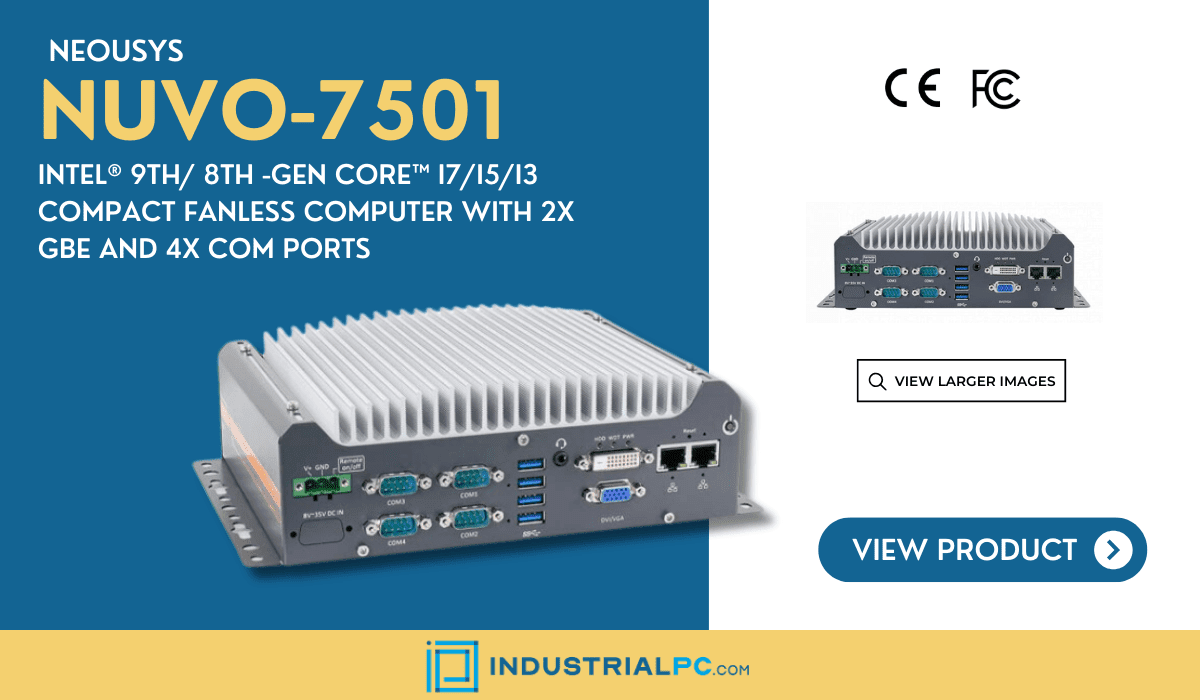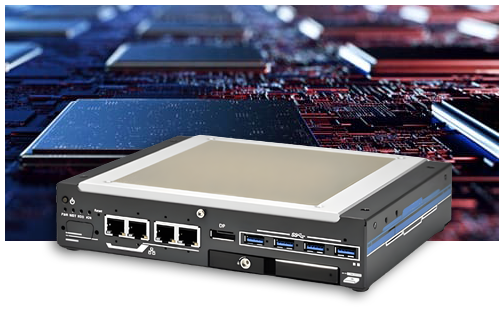Embedded Computers
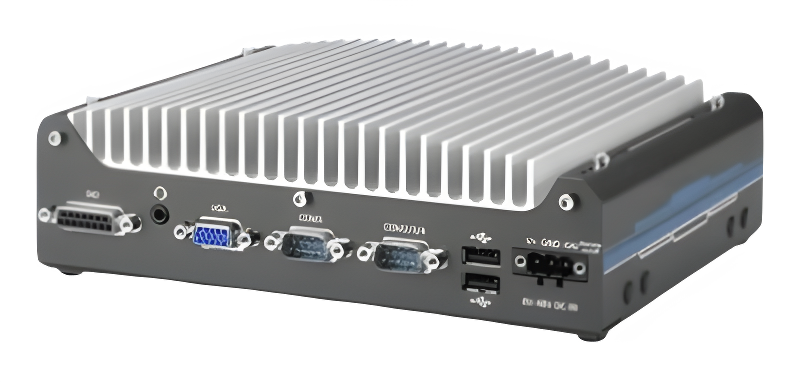
The Unique Advantages of Embedded Computers
Embedded industrial computers stand apart from their consumer-grade counterparts in several key ways, redefining the concept of computing power in demanding environments. Unlike the familiar desktop tower, these specialized systems are designed from the ground up to integrate seamlessly into larger machines, equipment, and industrial processes. This integration allows for streamlined operations, optimized efficiency, and enhanced functionality. Built to withstand harsh environments, they offer exceptional reliability and minimal downtime, reducing maintenance costs.
Each embedded computer is purpose-built for a specific task or set of tasks, tailoring its design and components to the unique demands of its application.
Summary: Embedded industrial computers are specialized systems designed for integration into industrial equipment and processes. Unlike consumer computers, they are rugged, reliable, and purpose-built for specific applications. Their design prioritizes seamless integration, durability in harsh conditions, and minimal maintenance requirements.
Industrial Strength Computing: How Embedded Systems Drive Efficiency
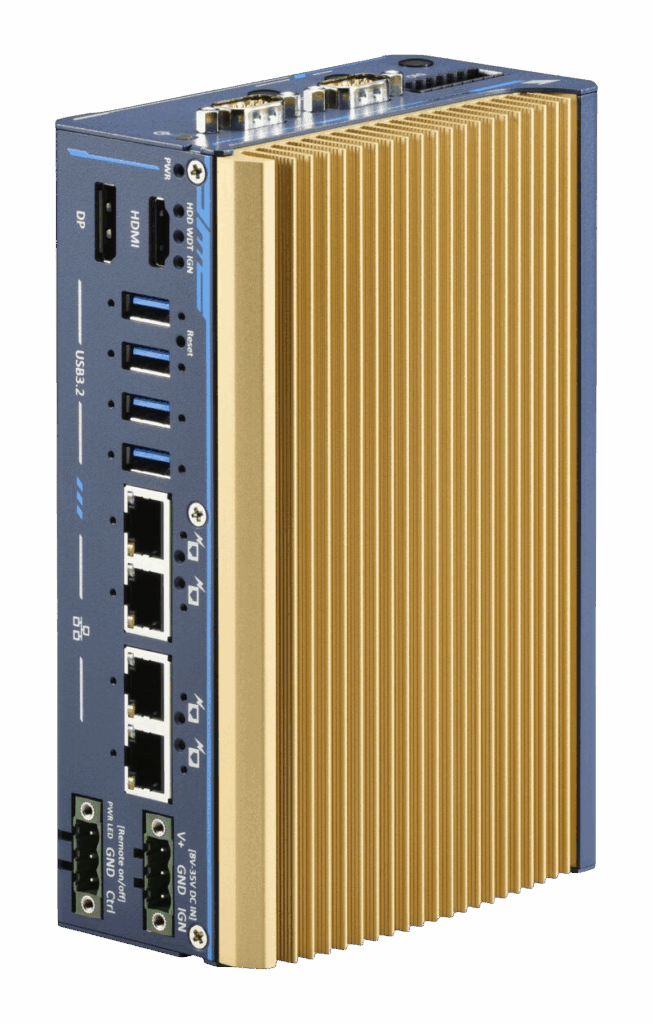
Compact Powerhouses
Often ultra-compact or mini-sized, these Embedded computers fit into tight spaces where standard PCs cannot. Think inside machinery, on factory floors, or even aboard vehicles.
Rugged Reliability
Industrial environments are harsh. Embedded computers are built to withstand extreme temperatures, vibration, dust, and even moisture. They’re engineered for 24/7 operation, minimizing downtime and maintenance.
Fanless Innovation
Many embedded computers use passive cooling techniques, eliminating noisy fans and potential failure points. This makes them ideal for enclosed spaces or environments where dust is a concern.
Efficiency and Performance
Despite their small size, embedded industrial computers pack a punch. They offer the processing power needed for demanding tasks like data analysis, machine control, and real-time decision-making.
Embedded Systems for Industrial Automation
Embedded systems are the backbone of modern industrial automation, enabling smart factories to optimize production and efficiency. These rugged computers control machinery, monitor processes, manage quality assurance, and predict maintenance needs. With real-time processing and the ability to withstand harsh conditions, they ensure smooth operation and empower data-driven decision-making, ultimately driving productivity and profitability in manufacturing.
Medical-Grade Embedded Computers
Medical-grade embedded computers are the reliable, high-performance foundation of modern healthcare technology. Designed for precision and safety in critical applications, these compact systems power a diverse range of medical devices, from diagnostic imaging to life-saving patient monitoring. Their adherence to strict industry standards ensures data integrity and optimal performance in demanding clinical settings, empowering healthcare providers to deliver exceptional care.
Embedded Systems for Intelligent Transportation
Embedded systems are revolutionizing transportation, powering the next generation of intelligent vehicles and infrastructure. These rugged computers enable everything from advanced driver-assistance features to traffic management solutions and the rise of autonomous vehicles. Their real-time processing and ability to handle vast amounts of data from sensors and cameras are essential for enhancing safety, optimizing traffic flow, and paving the way for a more connected and efficient transportation future.
These energy-efficient Embedded industrial computers systems are perfect for space-constrained or remote installations, and their real-time processing capabilities make them ideal for automation, robotics, and time-sensitive tasks.
With long product lifecycles and flexible configurations, they adapt to your evolving needs, ensuring a cost-effective, future-proof solution for any industry.
Whether you are seeking a fanless embedded computer system, rugged touchscreen technology, high-performance industrial motherboards, or a reliable all-in-one PC solution for a harsh environment, you can rely on Industrial PC to deliver.
Our experts have worked with top companies in some of the most demanding of industries including military, aerospace, heavy equipment, amusement parks, and industrial automation.
Featured Mini Embedded Computers
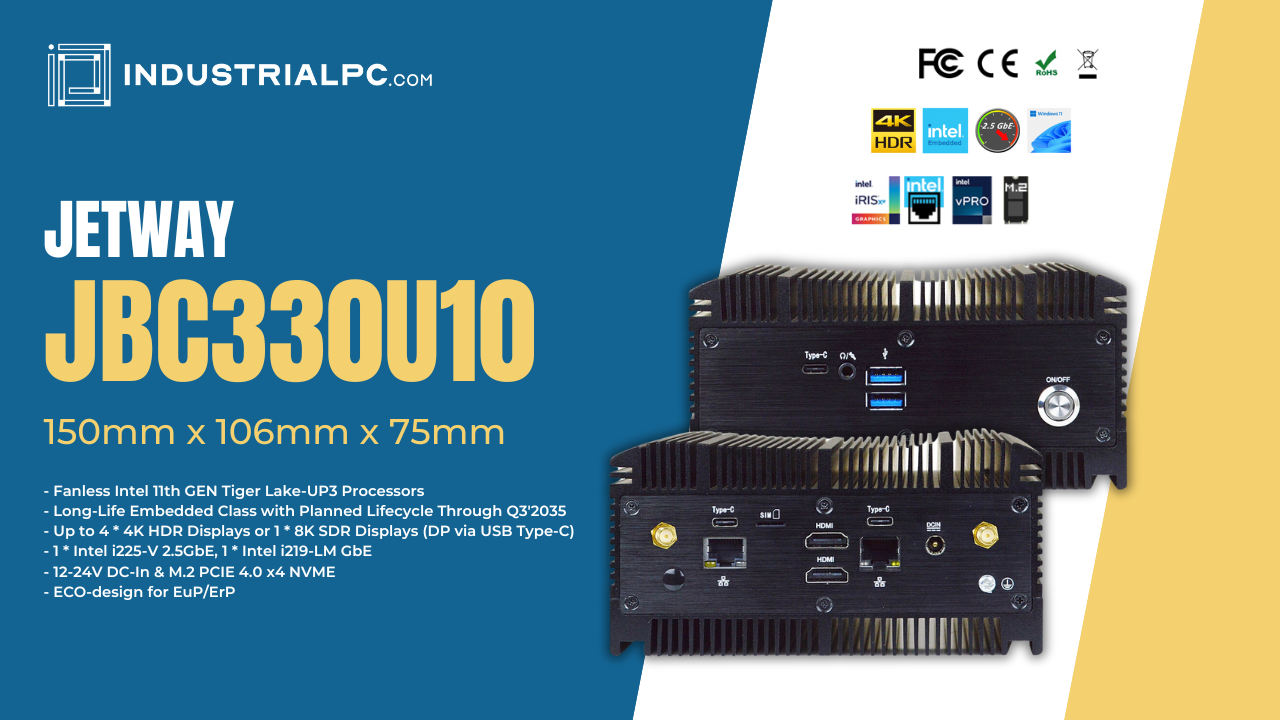
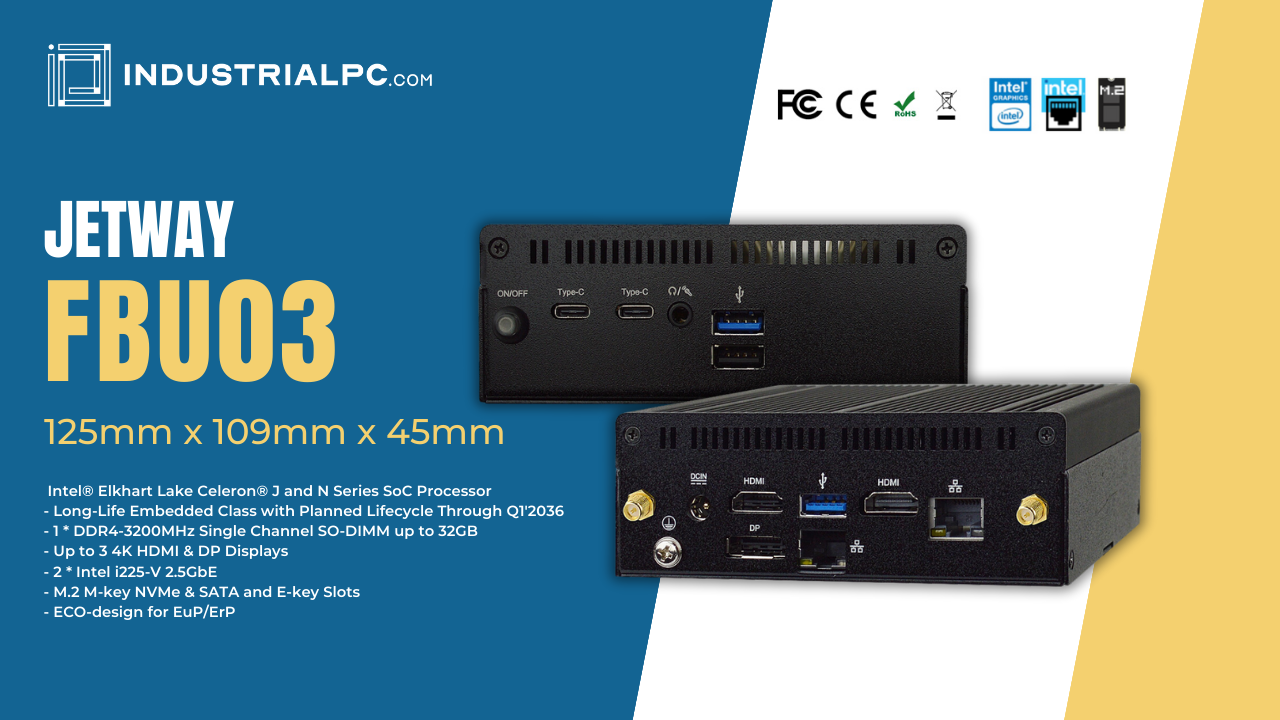
Space-Saving Solutions for Industrial Computing The Versatility of Embedded Systems
Embedded industrial computers are transforming what’s achievable in space-constrained and demanding environments. Their compact designs, often in ultra-compact or mini form factors, enable seamless integration into tight spaces within machinery, vehicles, or specialized equipment.
Despite their small size, these computers deliver impressive performance to tackle demanding industrial tasks. Their innovative thermal designs, frequently incorporating fanless cooling technology, ensure reliable operation even in confined spaces with limited airflow. This makes them ideal for installation inside cabinets, enclosures, or outdoor locations where traditional computers would overheat and fail.
A prime example of this innovation is the Neousys Nuvo-9531-FT. As the industry’s first flat-top embedded computer, it boasts a unique cooling mechanism. The flat top design eliminates the need for a traditional heat sink, making the computer even slimmer and more adaptable to odd-shaped or extremely tight spaces.
This groundbreaking approach leverages direct contact with the cabinet’s surface to conduct heat away from the computer. The flat top effectively acts as a heat sink, dissipating thermal energy through the cabinet walls. This ensures optimal cooling efficiency while minimizing the computer’s overall footprint.

Surveillance
Embedded mobile surveillance systems are engineered for rugged performance in demanding environments. Gigabit PoE+ ports power high-definition video from multiple I/O cameras, while 3.5″ drive bays accommodate large-capacity storage. These compact, embedded systems deliver reliable surveillance capabilities in any situation, capturing and storing critical video evidence with ease.

Digital Signage
Embedded digital signage systems deliver dynamic, eye-catching visuals with the reliability and flexibility demanded by modern advertising and information displays. Designed for seamless integration into kiosks, menu boards, and interactive displays, these compact systems boast high-resolution graphics, vibrant colors, and smooth video playback.

In-Vehicle Computers
Embedded in-vehicle computers are the brains behind the modern driving experience, powering a wide array of systems that enhance safety, convenience, and connectivity. These compact, ruggedized systems are designed to withstand the rigors of the road, from extreme temperatures and vibrations to dust and moisture.

Edge AI / GPU Computers
By bringing AI to the edge, embedded systems unlock a new realm of possibilities for industries seeking to leverage intelligent automation. Applications such as autonomous vehicles, smart surveillance, and industrial robotics rely on the rapid response times and low latency of embedded AI systems to make critical decisions in real-time.

Industrial IoT Gateways
Equipped with a variety of communication interfaces, including Ethernet, Wi-Fi, cellular, and industrial protocols like Modbus and OPC UA, embedded IoT gateways seamlessly connect disparate systems and devices, creating a unified network of intelligent assets.









